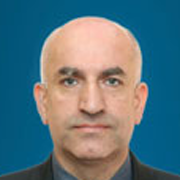Chercheur
Bayram Balci holds degrees in political science and in Arab and Islamic studies from the Political Studies Institute of Grenoble and Aix-en-Provence.Bayram Balci holds degrees in political science and in Arab and Islamic. Bayram Balci holds degrees in political science and in Arab and Islamic studies from the Political Studies Institute of Grenoble and Aix-en-Provence. He wrote his doctoral dissertation on Turkish Islamic movements and their missionary activities in post-Soviet Central Asia. He was a Jean Monnet post-doctoral fellow at the European University Institute in Florence, where he worked on Central-Asian communities in Saudi Arabia and their contribution to the re-Islamization of the region. Further in his career, he was a scholar at the French Institute of Anatolian Studies in Istanbul and set up the French Institute of Caucasian Studies in Baku, while researching on relations between the Chia and the Sunni Muslims in Azerbaijan and in Iran. From 2006 to 2010, he was the director of the French Institute of Central-Asian Studies (IFEAC) in Tashkent. From 2012 to 2014, he was a visiting fellow at the Carnegie Endowment for International Peace in Washington, D.C.Bayram Balci’s current research focuses on Islam and politics in the former Soviet Union and on Turkey in its regional environment (Central Asia, the Caucasus and the Middle East).
New Forms of Turkish Muslim Proselytism towards and Turkish-speaking Nations, New Turkish Policy towards the Middle East
Central Asia, Caucasus, Ex-USSR, Turkey

- Reviving Central Asia’s religious ties with the Indian subcontinent? The Jamaat al Tabligh (Article dans une revue avec comité de lecture)
- Turkey's Religious Outreach and the Turkic World (Article dans une revue sans comité de lecture)
- La Turquie en Asie centrale : acteurs privés et étatique dans le développement d’une influence islamique turque dans les républiques post-soviétiques (Article dans une revue avec comité de lecture)
- Between secular education and Islamic philosophy: the approach and achievements of Fethullah Gülen’s followers in Azerbaijan (Article dans une revue avec comité de lecture)
- Religion et politique dans le Caucase post soviétique (Ouvrage)
- Missionnaires de l’islam en Asie centrale, les écoles turques de Fethullah Gülen (Ouvrage)
- Russie, Iran, Turquie, quelle puissance s’imposera au Moyen-Orient ? (Contribution à un site web)
- Ideological interventions in the Covid-19 health crisis in Turkey by power, politics, and religion (Article dans une revue sans comité de lecture)
- Turkey, Russia and Iran in the Middle East. Establishing a New Regional Order (Direction d'ouvrage)
- Introduction: Turkey, Russia, and Iran—New Dominant Powers in the Middle East? (Chapitre d’ouvrage)
- The Syrian Crisis and Its Contribution to Authoritarian Transformation of Turkish Domestic and Foreign Policy Identities (Chapitre d’ouvrage)
- Introduction - Analyses pluridisciplinaires sur la crise sanitaire COVID-19 en Turquie (Chapitre d’ouvrage)
- Les investissements idéologiques par le champ du pouvoir, du politique et du religieux de la crise sanitaire COVID-19 en Turquie (Chapitre d’ouvrage)
- Analyses pluridisciplinaires sur la crise sanitaire COVID-19 en Turquie (Direction d'ouvrage)
- La Russie et le conflit du Karabagh : Moscou est-il toujours le maître des horloges ? (Contribution à un site web)
- Face à la Turquie, la Russie toujours maître des horloges dans le Caucase ? (Contribution à un site web)










